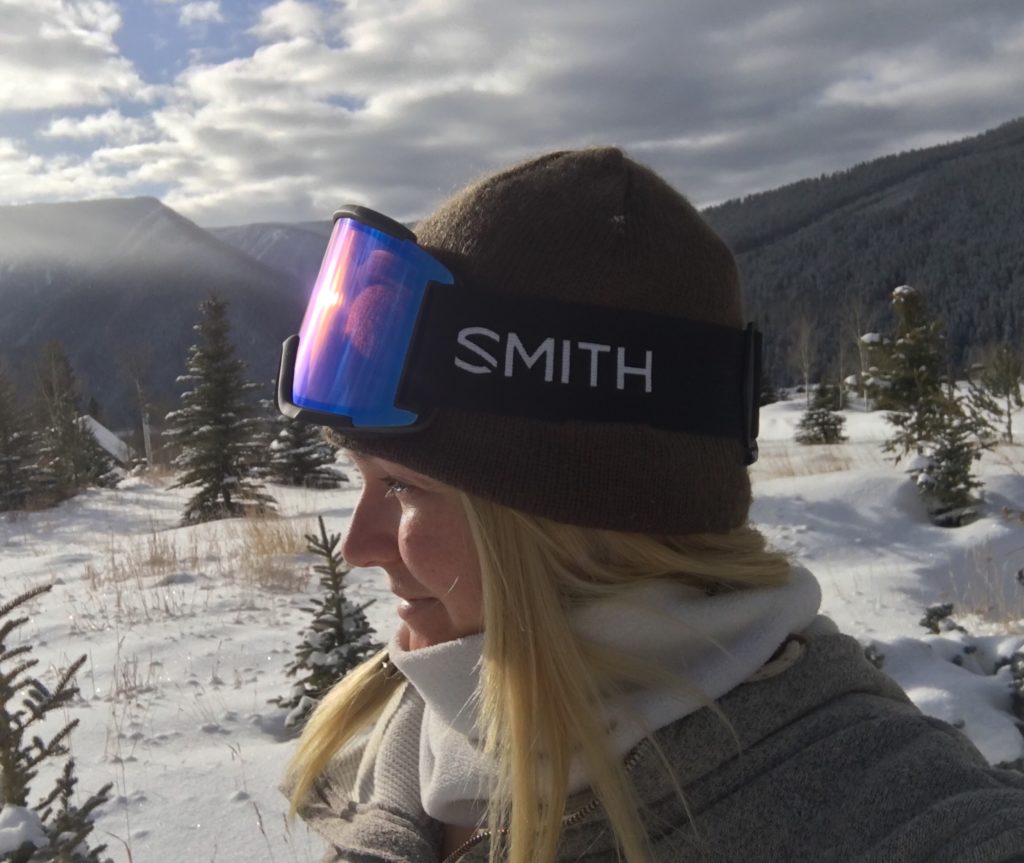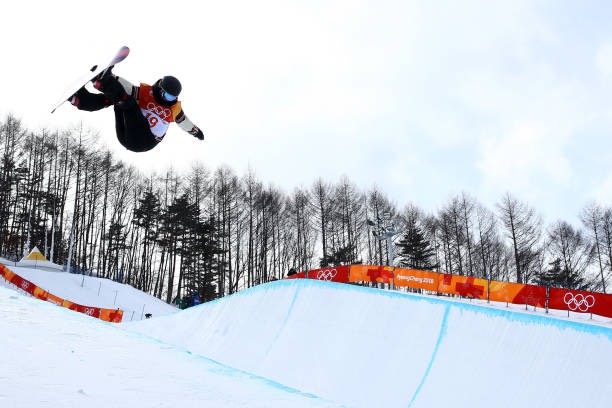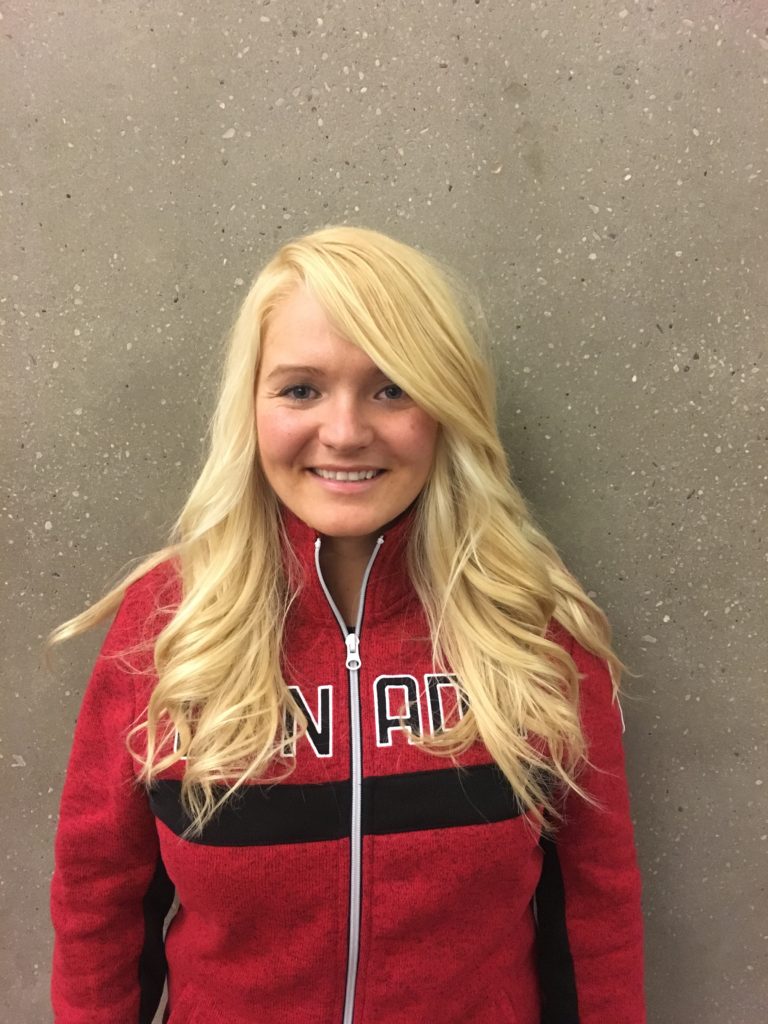If you followed the winter Olympics at Pyeongchang with a stalker like obsession, this series might just be for you – and it’s definitely for you if you miss the Pyeongchang Games with something akin to chronic post-holiday blues. Yes, hold that chin aloft because together we shall assuage the sense of loss by reflecting upon and reviewing the 2018 Winter Olympics through the eyes of its participants.
And where else to start but with that doyenne of the Canadian team, four time Winter Olympian and halfpipe snowboard legend Mercedes Nicoll, who now has a chance to reflect on her qualification for Pyeongchang – a berth which not all that long ago was hanging precariously in the balance following a career-threatening injury at Sochi 2014.
At the tournament’s half-way stage on February 12th, Mercedes entered the halfpipe for her practice run ahead of the afternoon’s qualifiers. She looked composed rising up the sheer face of the pipe and getting airborne before spinning into the backside 900, but as she began her descent Mercedes’ snowboard caught the lip seven metres above the flat, quickly inverting her. She landed on her hip, suffering damage to her hip bone, eye and ribs, as well as concussion. The effects would dog her for the next eighteen months. For a month she would be unable to drive because her eyes weren’t tracking. She would struggle to hold conversations and walking would be a form of acute agony. The notion of riding a snowboard again recreationally, much less at a competitive level, seemed an unlikely prospect.
“It always feels like a relief when I’ve qualified for the Games,” she says with what I presume to be massive understatement when I ask how it felt to make it to Pyeongchang. “We spend the whole year leading up to the Games qualifying, biting our nails, wondering if we should be playing it safe, to just get to the Games, or do a hard run to get to the finals of that contest, or risk falling and dwindling our chances of making it to the Games.”
But the tension that accompanied those qualification performances was barbed by an added pressure. Following Sochi 2014 Mercedes was not only left with the omen of a future out of snowboarding, but one shadowed by depression. Put bluntly there was much to bounce back from.
“I learned how strong I was physically before my injury and how hard I had to work to get back. Taking two years off to recover was not preferable, and I don’t recommend it. At these Games I wanted to land that dang backside 900 that took me out in Sochi. It’s a trick that has been mentally challenging me for the past two years.”
The road to the 2018 Games was a rocky one, one which would wind through dark valleys and arrive at imposing rock faces that others might have found insurmountable. Mercedes would require mental tenacity and no paucity of support to travel it, but first she had to realise that competing again was something she truly wanted.
“In 2015 I started working at RBC as part of their Olympian Program, not knowing if I would ever be able to compete again. I took a two year contract and part of my job is doing public speaking. As I worked on my speech and shared it with others, it hit me, if my body would let me snowboard again, I would work towards competing again. I’m a little stubborn and once I got back in the pipe, I felt it coming back. Once I focus on something I’ll do what I can to make it happen; I was on the path to my fourth Olympics. I have to thank all the people that follow me, have heard me speak and keep sending me inspirational words, because without them I may not have realized my potential. I will be forever grateful for having them by my side.”
It hasn’t been all take though from the perspective of emotional support. Because everything that the most decorated woman snowboarder in the Canadian international team has learned over the years made her the cornucopia of knowledge for younger competitors at Pyeongchang.
“I said this in the press conference at the Olympics to our youngest Olympian on the team: the Olympics can be overwhelming, you’ll want to see everything you can, you’ll want to be a spectator. My advice is you can do that after you compete. You are here for a reason – yes everyone else including your family is having the time of their lives, but this only happens every four years; live in the moment, enjoy yourself after you’ve competed.”
That capacity for counselling is especially important in the run up to the Olympics. Think back to the Games of recent decades and it’s hard to conjure an event that hasn’t been preceded by controversy of some kind; political, meteorological or the downright unscrupulous. Pyeongchang, which threatened to be the coldest Olympics on record and was immersed in the issues of recently-excluded Russia, was no exception.
“There’s always a news story,” Mercedes says, speaking with the weight of four Olympic tournaments behind her. “Having the knowledge of how it works at past Games you come to realize, yes the press is looking for a story, usually a negative one. The best thing about the Games is that you get to live in the Olympic Village bubble. The Canadian Olympic Committee does an outstanding job of making athletes comfortable so we can focus on the task at hand; we are there to compete, to do our best, we are a family that understands that some things are out of our hands, but we focus on the now and know the task we have in front of us.”
Not many among us would achieve the status of four-time Olympian. Come to think of it, not many Olympians would achieve it – not given injuries to the extent of those Mercedes suffered at Sochi. But she battled back and achieved the inconceivable and in doing so honed her Olympic footing. Because the Olympics isn’t about just medals. It’s about finding ways to overcome. Ways to live more Olympic moments. And the most treasured moment from Mercedes Nicoll’s Pyeongchang?
“Other than landing the back 9, [yes, she did lay that ghost to rest] it would be being honoured and asked to walk in the front line of the opening ceremonies. Only eight athletes were chosen, it was a moment I’ll never forget!”
I know that, as a spectator, I don’t shoulder Post-Olympic withdrawal symptoms alone. If you’re a fellow mourner, you’ve probably wondered how an Olympian deals with that post-Games come-down because let’s face it, after months, years, a lifetime even, of preparation, what do you do when it’s all over and the curtain comes down on the closing ceremony? I wonder if perhaps you might start to think about the next four years. So: Beijing 2022? Olympics number five for you Mercedes?
“Haha you’re the first person to officially ask me that,” she laughs. “Olympics number five might be as a support staff. For me I think four Olympics is enough, unless I decide to do a less high risk sport! Ha, I’ll be a snowboarder forever! For now you can find me at Whistler Blackcomb guiding clients around in the Ride with an Olympian Program.”
Did anyone actually hear a ‘no’ there?
My thanks to Mercedes for her second visit here and her ceaseless enthusiasm. Stay tuned for Olympic Reflections Part 2, when I’ll be talking to skeleton bronze medal winner Laura Deas.
In the mean time you can follow Mercedes Nicoll at the following feeds:
Twitter: @mercedesnicholl
Facebook: /MercedesNicollProSnowboarder
Instagram: /MercedesNicoll
But if that’s not close enough for you, why not take some lessons from the lady herself? If you want to get to know her home territory and the pistes of Whistler Blackcomb like nobody else, hone your skills on the snow with Mercedes.



